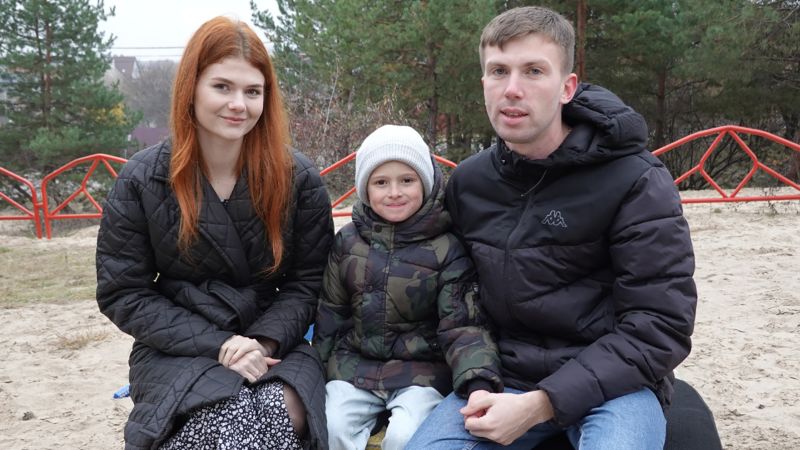A more open approach to adoption is needed so that adoptees don’t lose their relationships with people who have been important to them in their lives, according to new research from the University of East Anglia (UEA).
Findings from two studies, released during National Adoption Week by the UEA Center for Child and Family Research, also suggest it helps adoptees have a better sense of their own identity.
The theme for this year’s National Adoption Week is maintaining the relationships and identity of adopted children.
Professor Elsbeth Neil, from the UEA School of Social Work and one of the study’s authors, said: ‘Adoption has often been seen as a ‘fresh start’ with a ‘clean break’ since the birth of the child considered necessary. But now, new research with adopted adults demonstrates the problems this approach causes throughout life.
“Without information about their origins and family of origin, adoptees struggle with questions of identity, and many feel a sense of loss at the thought of losing important relationships, or simply not having the chance to know their parents, brothers, sisters or others when they were born.
“Tens of thousands of adult adoptees and their birth parents have been impacted by the lack of adoption openness, but services to help them deal with the consequences of this need must be given higher priority.”
Professor Neil added: “Adoptes need faster and easier ways to access their adoption records and they need access to affordable support services to help them overcome the emotional impact of adoption and help them find their biological family where desired. .
“This research also has messages for adopted children today, specifically that the system needs to do more to actually keep children’s relationships where they are safe and supportive, so they don’t end up with these issues of Identity in Adulthood.
The first study examines how adoption agencies respond to requests from intermediary agencies to support reunification between adopted adults and their biological families.
Intermediary services help adult adoptees contact their birth family, and vice versa, they can help birth parents get in touch with their adopted child.
Before intermediaries can put people in contact, they must ask the body holding the adoption records to check the record for contact details, background information and to ensure that the adopted person has not vetoed being contacted by biological parents. .
This new research, conducted with adoption intermediary service Joanna North Associates, explores how quickly adoption agencies respond to these requests and the factors that can prevent a quick response. A key recommendation is that the needs of adult adoptees and birth parents should receive more strategic attention at national and agency levels.
Dr Joanna North said: “Our work to connect adopted people to their lost family of origin has shown us the cost of human suffering when people cannot connect with their biological parents in a timely manner. These searches are time-sensitive. On too many occasions, the system has been so slow to respond to our requests for documents that the subject of a search may be dead before we reach it.
“Research we have conducted with UEA shows the wide variations in the time agencies can take to check records, as well as the lack of resources and guidance to enable searches to be carried out quickly.
“The government must ensure a consistent process from local authorities so that there is a minimum standard to help adoptees access their records, reducing the suffering this causes.”
The second study, conducted in collaboration with adoption support agency PAC-UK, analyzes survey data from over 200 adult adoptees exploring their priorities around the topic of maintaining biological family relationships.
He found broad support for prioritizing birth family relationships, the need for more support for adult adoptees, and a more open discussion of birth family ties. The results will be presented today at an online event organized by PAC-UK and led by adult adoptees.
Mike Hancock, National Strategy Manager for PAC-UK, said: “We are in an exciting time of potential change in adoption where questions are being asked about whether the severing of biological family ties and the secrecy that entails results around identity are beneficial for adopted children. The message we get for many adult adoptees is that this is not the case.
In a webinar on Thursday 20 October, Professor Neil will discuss ongoing work around the “theory of change”, focusing on the adoption system and highlighting key issues around the lack of openness in the adoption, and the problems it entails for adoptees, biological parents and adoptive parents.
The webinar will be organized in collaboration with CoramBAAF, an independent organization for professionals, foster and adoptive parents, and anyone else working with or caring for children in care or in new care, or adults who have been affected by the adoption.
Over the past few months, researchers have built on existing research and interviewed a wide range of people with lived and professional experience. The event will include contributions from a range of people with lived experience, including adopted adults, a birth parent and an adoptive parent. The focus will be on what could be done differently to improve the adoption system.
Research briefings for both studies are available at CRCF Research Briefings – Groups and Centers (uea.ac.uk)
Disclaimer: AAAS and EurekAlert! are not responsible for the accuracy of press releases posted on EurekAlert! by contributing institutions or for the use of any information through the EurekAlert system.
 Christ Yoder
Christ Yoder
/cloudfront-us-east-1.images.arcpublishing.com/gray/ODYKQRO5GRGJREMXBZNK5UFIX4.jpg)


